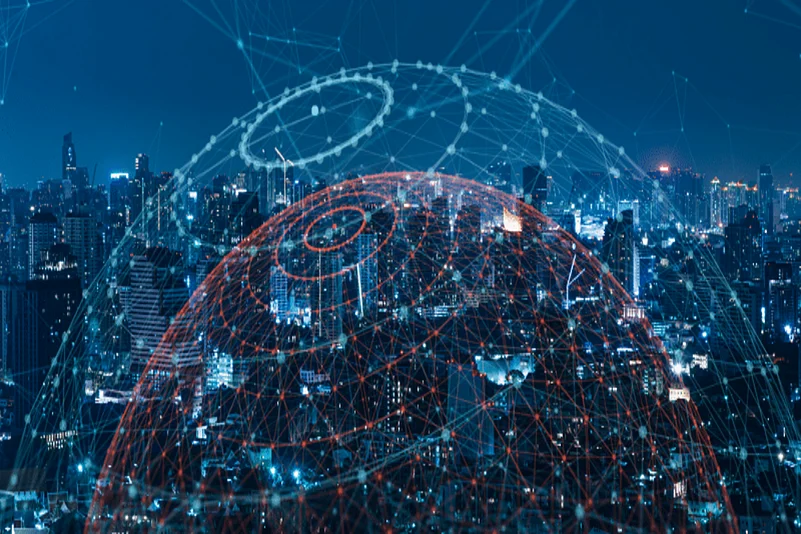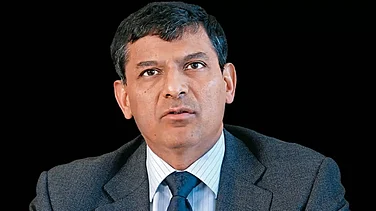The Internet is everywhere. It enables connections, provides information, and helps take actions and make decisions. The Internet of Things set in motion a new way of interconnecting devices, not only people but also creating new opportunities, disrupting transportation, medicine, manufacturing, retail, entertainment, social and political scenarios, and ultimately transforming the world in many ways.
How The Internet Of Contracts Will Define A New Era Of Business
The Internet of Things set in motion a new way of interconnecting devices, not only people but also creating new opportunities, disrupting transportation, medicine, manufacturing, etc.

When it comes to business, global business runs because of a contract – buying, selling, hiring, leasing, renting, insuring, acquiring, merging – everything runs because (and according to) of the contracts behind them. When it doesn’t, it brings long term adverse impact on business, brand, commerce, quality, and customers. What brings relationships together and builds trust is the contract between parties that transact with each other – when the risk and reward for both parties make sense.
And they are deeply connected – a new car model launch plan triggers on average 15,000 contracts – with suppliers, partners, dealers, marketers, customers. The launch triggers hiring and contracting, not only with the manufacturer but also its partners; the ad campaign triggers more VMs in search engines in a specific geography, in turn resulting in additional data center contracts; sustainability contracts to replace older parts and models, triggers hiring in an ad agency in China, a paint shop in India, a leather procurer in the Philippines; the list is endless. These repercussions reach far, and in a connected world, reach globally. In fact, these relationships taken together can be the foundation of global commerce.
Imagine a world where these relationships were “live” – that they did not depend on humans updating the flow of data, that they were automatically synchronized, and that they had a protocol to communicate change across the network. Information could flow freely, businesses globally could adjust quickly and efficiently when things changed, and commerce would be magnitudes more efficient. That is what the Internet of Contracts is all about – bringing transparency, seamless data flow and agility so that the right decisions can be made quickly. All towards working together to build trust in a global ecosystem, strengthen the bonds of relationships and ultimately help build a better world.
The Protocol
Just as the Internet runs on TCP/IP, the Internet of Contracts would run on a common transport that defines the structure of a contract – the attributes (what are the values that define an instance), the terms (what are the boundaries of engagement), the obligations and entitlements (what parties to the contract promise to deliver to each other), and the risks and rewards (what they could lose if they under-perform or what they would gain if they over-deliver).
This protocol will define how these (sometimes) loose semantic constructs can be expressed in machine-understandable terms. There is a lot of work that will go in the standardization of these semantics, but AI and machine learning are now at a level of maturity to make this real.
The Trust
Will my competitor know my pricing terms? Will my customer know who I source my raw material from and try to take advantage of it? Will I lose my power of negotiation; will a larger competitor (or even a customer) get a competitive advantage? How do I know that a discount or penalty is calculated fairly?
When contracts are inter-connected across multiple parties, the biggest challenge is trust. The trust on the Internet today comes from technology mechanisms like SSL certificates that verify the identity of the webserver and the entity behind it, or from companies that have a responsible privacy policy that they are expected to adhere to.
The Internet generally works because these trust mechanisms, though not at all perfect, generally work. For contracts though, the level of trust is much, much higher. And that is where blockchain comes in – with a distributed ledger that can be independently verified by each party involved and where the technology virtually guarantees consistency if all parties can equally participate, this trust can be built with the help of technology. Blockchain has opened the doors for this transformation to the Internet of Contracts.
The Actions and Interactions
The Internet is as popular as it is today because it is easy to reach, and it fulfills a psychological need to connect to people and systems. The ubiquitous “like” is a symbol of this need; the online window shopping that converts into an impulsive buy is the symbol of the Human Computer Interface (HCI) moving from the traditional car salesman to a richer, more sophisticated, and more informed Human Computer interaction.
For contracts as well, negotiation and obligation (or entitlement) fulfillment could move to a human-machine interaction. A small example is when you rent a car and make so many choices – full tank of gas, limited miles, a convertible because the day looks good – result in a contract that is automatically generated. Think about trillions of dollars’ worth of contracts being adjusted to take care of commercial situations. The state of the art today in Artificial Intelligence, coupled with the “smart contract” that blockchain technology enables, would make these actions and interactions possible.
Connecting Tomorrow’s World of Commerce
Industries like manufacturing, banking, insurance, healthcare, and real estate stand to benefit from adopting smart contracts. When codified, autonomous, smart contracts get connected on the Internet of Contracts, the business models that can emerge out of this architecture can be remarkably transformative. For one, smart contracts can provide visibility at every step of a supply chain through interconnected devices that write to a smart contract as a product moves from the factory floor to the store shelves.
Response times of businesses to events can also be dramatically reduced. For instance, smart contracts can significantly improve the fragmented process of car insurance claims by recording the policy, driving record and reports of all drivers. This enables smart contract equipped vehicles to execute initial claims shortly after an accident. And automated insurance claims enabled by smart contracts offer instantaneous processing, verification, and payment by vehicles that can communicate with each other and assess and validate their own condition based on a network of contracts that exists between the customer, manufacturer, the parties involved in the accident, the police, the valuators, and the service providers – providing a fair, end to end, transparent and trusted experience to each of these relationships.
As contract management evolves into a system of record for the enterprise, bringing traditional silos together and enshrining the rules of business, this network of contracts will play a massive role in delivering transformational benefits including autonomy, efficiency, reduced risk, and increased compliance. And, when we connect these codified, autonomous, smart contracts, we begin to see the new era of business take form. The Internet of Contracts will be born.
(The writer is the Chief Technical Officer and Cofounder atIcertis)

























